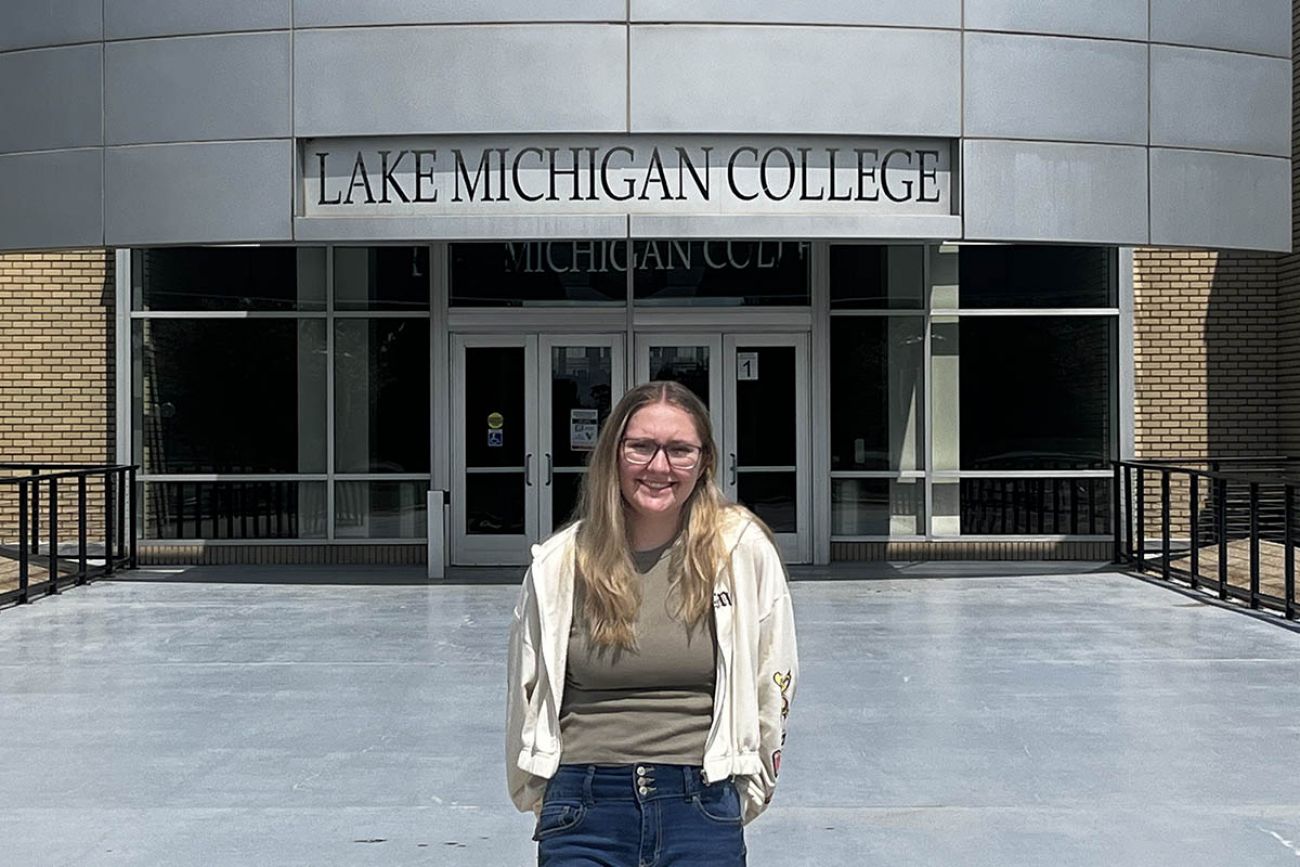Student Success Center Network
Resource Library
The Student Success Center Network (SSCN) is dedicated to economic advancement and racial justice by dramatically and equitably increasing the number of students earning postsecondary credentials with value in the labor market. Below, you will find resources that our 17 statewide Student Success Centers have found useful in their work and resources created by our network.

In April 2023, the Student Success Center Network (SSCN) presented at the Council for the Study of Community Colleges’ 64th annual conference in Chicago. This year’s conference theme was Advancing Emotional Well-Being Through Equity-Mindedness, and members of the SSCN presented highlights from our New Directions for Community Colleges volume: “The Student Success Network: Advancing Economic Mobility and Racial Justice.”
[+]
[-]
Read More
On March 20, the Student Success Center Network (SSCN) attended the Association of American Colleges & Universities conference on diversity, equity, and student success to share approaches to accelerating progress in meeting students’ needs. Phyllis Clark and Beth Ann Collins, associate directors from the Kentucky Student Success Collaborative (KYSSC), discussed how they are using two essential strategies to accelerate the progress of Kentucky’s strategic agenda for higher education.
[+]
[-]
Read More
In March 2023, the Student Success Center Network presented at the American Association of Colleges & Universities (AAC&U) Conference on Diversity, Equity, and Student Success in the session Student Success Centers: Elevating Student Voice and their Truths for Institutional Transformation. Attending the AAC&U Conference provided an opportunity to engage with peers from across the country to share best practices and reflect on our experiences as we all strive to keep students at the center of our commitment to systemic educational transformation.
[+]
[-]
Read More
"Community colleges are often understaffed and lack the capacity to tackle additional reforms or initiatives. To help address this issue, many of the SSCN Centers have deployed coaches to work with colleges and provide the extra support they need to be successful. This chapter highlights examples from a few Centers plus overviews targeted coach training provided through the SSCN."
[+]
[-]
Read More
"How do states with strong, centralized systems make sure faculty are not only engaged in success efforts but also leaders in those efforts? This chapter from the Florida Student Success Center demonstrates how faculty are key to the successful, statewide integration of mathematics reform."
[+]
[-]
Read More
"How can statewide reform efforts be successful without a centralized governance body? The Michigan Center for Student Success details how they are able to engage their community colleges even in the absence of any state-level governing authority."
[+]
[-]
Read More
"What does all the work in the student success centers teach us about implementing evidence-based reforms in various state governance structures and contexts? This final chapter helps to connect the dots as well as recommend future direction and focus for the SSCN work."
[+]
[-]
Read More
"Student Success Centers (SSC) belong to a national network dedicated to increasing the number of students earning postsecondary credentials. SSCs use a variety of methods and strategies to help states within the network achieve these goals. This chapter focuses on practical ways for student success centers to help colleges navigate the complexities of addressing issues within diversity, equity, and inclusion (DEI) with a primary focus on equity. Using the eight most common equity challenges as a framework, this article addresses each challenge and then provides pragmatic solutions to overcome those challenges."
[+]
[-]
Read More
"Research has shown that a key strategy for increasing success for students of color is to diversify the faculty and staff at community colleges. Read how this Success Center leveraged its varied areas of expertise to assist the Chancellor’s Office in this important endeavor."
[+]
[-]
Read More
"Jobs for the Future (JFF), the facilitator organization of the SSCN, provides an historical background of the founding and expansion of the national Student Success Center Network (SSCN)."
[+]
[-]
Read More
"The evidence for the widespread use of data for decision making is clear. Learn how two Centers in the network were able to encourage colleges to see the use of data as more than merely a tool for compliance."
[+]
[-]
Read More
JFF introduces the Success Center for Ohio Community Colleges and Ohio community college leadership, faculty, and staff to JFF’s Guided Career Pathways framework (GCP).
[+]
[-]
Read More
This brief summarizes what we learned and is drawn from interviews and focus groups with Center leadership, college administrators and staff members, and the coaches themselves.
[+]
[-]
Read More
Less than 10 percent of U.S. community college students placed in remedial courses earn degrees Many Michigan community colleges are phasing out traditional no-credit remedial courses Officials hope the change will encourage students to stay in college
[+]
[-]
Read More
Nine Kentucky colleges and universities have identified strategies to increase degree completion rates and close equity gaps with the help of the Kentucky Student Success Collaborative, an initiative of the Council on Postsecondary Education. Includes quote from Elizabeth McWhorter.
[+]
[-]
Read More
Based on national best practices, ACME removes enrollment and completion barriers, bolsters just-in-time supports, and affords all students a clearer path to success at Connecticut State Community College.
[+]
[-]
Read More
The Hope Center for College, Community, and Justice and JFF join forces to scale best practices in addressing student basic needs and expanding emergency student aid across a network of 52 community colleges.
[+]
[-]
Read More
Community college representatives across the four Student Success Centers who participated in a community of practice share their learnings around the 2-Generation Framework—a powerful tool designed to shape policies and practices that enhance support for student parents on college campuses.
[+]
[-]
Read More
Over the past three years, the Michigan Center for Student Success (MCSS) at the Michigan Community College Association (MCCA) has focused on implementing the statewide Strengthening MiWorkforce Pathways project with generous grant funding from the Ascendium Education Group. The workforce-focused initiative is one of many system-level efforts among states in the Student Success Center Network that embrace and recognize learner agility and learning that happens outside the traditional classroom. The explicit focus on credit for industry credentials provides a framework for state-level strategies supporting community colleges’ efforts to improve student completion rates.
[+]
[-]
Read More
The Guided Career Pathways model reflects the current need for rapid reskilling and a world of work being transformed by technology, that supports adult students balancing family and work obligations, that acknowledges and grants credit for the skills gained through work, and that focuses on racial and socioeconomic equity.
[+]
[-]
Read More
Lumina Awards Millions for Admissions Innovations including a grant to the Kentucky Student Success Collaborative.
[+]
[-]
Read More
Lt. Gov., national experts discuss how AI could impact higher education and the workforce
[+]
[-]
Read More
With AI continuing to evolve, community colleges in the state are starting a conversation about staying ahead of the AI learning curve.
[+]
[-]
Read MoreNo resources found. Please select another filter.
Check out the rest of JFF’s Resource Banks:
JFF Ideas
Building Equitable Pathways
Jobs for the Future (JFF) drives transformation of the American workforce and education systems to achieve equitable economic advancement for all. www.jff.org
Jobs for the Future’s Education practice works to support systems change in the education ecosystem, influence policies that promote diverse pathways, and identify and apply data-informed, learner-centered solutions.





